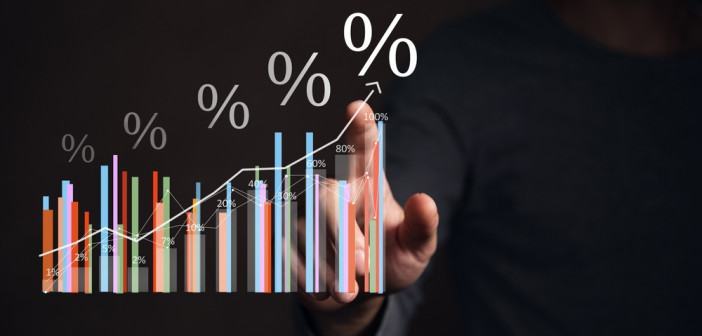It was only on Tuesday that in an otherwise upbeat assessment of the UK economy, the International Monetary Fund warned of “premature celebration” of sharp falls in the main rate of inflation.
There are two separate inflationary trends occurring here.
The main rate is falling, less sharply than anticipated, but down below 10% nonetheless.
This will continue and is the mechanical consequence of the massive rises in energy prices one year ago, now being baked into the calculation.
The bigger concern, however, is about the extent to which inflation is becoming embedded across the economy and will linger for months to come, even as energy prices stabilise.
Wednesday’s figures show some evidence for that, with measures of core inflation and services inflation going up.
Mobile phone bills, for example, went up by double digit amounts in April because they were linked to existing interest rates.
Food price rises might be showing the delayed impact of previous energy price rises.
Some double digit pay rises in shortage areas of the workforce may keep prices high.
The stubbornness or stickiness of inflation is a global phenomenon, and not surprising after one shock that damaged the world’s supply lines – the Covid pandemic – and another that hiked the cost of gas and oil – Russia’s Ukraine war.
Double digit inflation has not in history tended to resolve itself in weeks or months but has taken two to three years.
However the figures raise the question about whether UK inflation is stickier and more stubborn than elsewhere.
At 8.7% in the UK, inflation is higher here than in France, Germany and US. The UK has the highest core inflation in the G7 and now the highest food inflation too.
There are some timing differences on energy support measures that could explain some of the UK inflation premium.
But some at the Bank of England have pointed to the fact that British producers now face less intensive competition on prices from European firms.
It may mean a greater tendency for prices that shot up like a rocket to fall like a feather.
However, Chancellor Jeremy Hunt said it is “very dangerous to make international comparisons when things are changing so rapidly”.
“A few months ago, everyone was saying we were going to be the lowest-growing economy in the G7, now we’re definitely not going to be that, and possibly higher. So we don’t know,” Mr Hunt said.
At the top of government, the hope and the assumption is that the UK is doing better economically than the statistics suggest, and so generating more inflation.
That is welcome up to a point.
But it creates a prolonged headache for the Bank of England, which seems set to raise interest rates closer to 5%, to rein in those price pressures.




